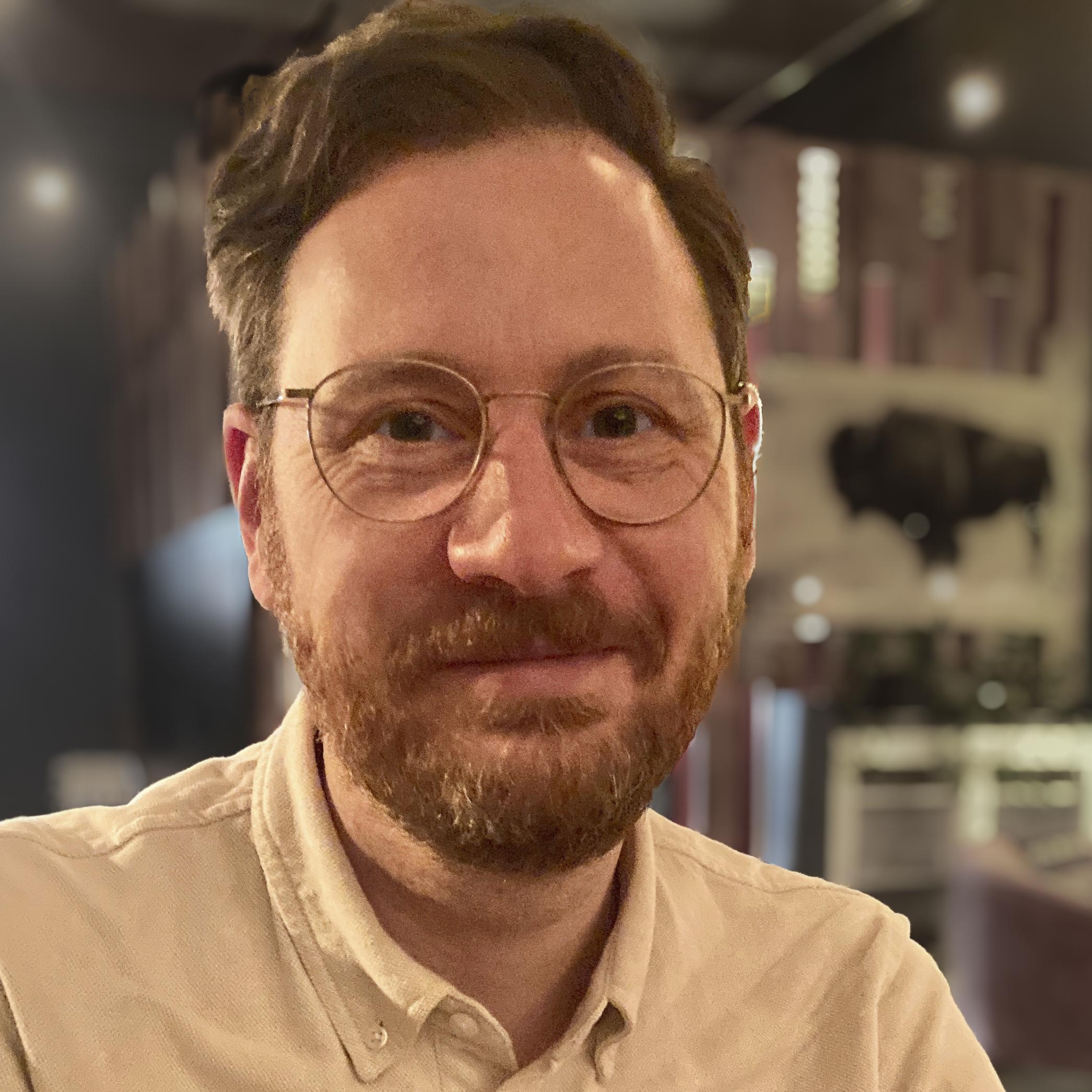Staff profile
Dr Jesse Proudfoot
Associate Professor - Level 1 BA Criminology Year Tutor

| Affiliation | Telephone |
|---|---|
| Associate Professor - Level 1 BA Criminology Year Tutor in the Department of Sociology | +44 (0) 191 33 42232 |
| Lead of The Practice in DRP-MH in the Institute for Medical Humanities |
Biography
I am an interdisciplinary health researcher concerned with the intersections of structural violence, illness, and subjectivity.
My research looks specifically at drug use and addiction, phenomena that I approach as modes of relation to the problems of life and living. Rather than treating addiction as a neurochemical imbalance, an individual pathology, or a moral failing, my work approaches addiction as an embodied symptom that serves social and psychical purposes for the user—whether that is managing the affects produced by violent, uncertain, or precarious environments, self-medication against experiences of trauma, or the thorny issue of pleasure. I explore these motivations through ethnography and life-history interviews with drug users in order to understand the roles that substances play in people’s lives, the social and political valences of addictions treatment, and the ways that drug use and users are governed.
I’ve written on questions of how place produces and shapes compulsive drug use (Proudfoot, ‘Traumatic landscapes’); the role of unconscious fantasy in maintaining punitive social policy (Proudfoot, ‘Libidinal economy’); and the challenges posed by psychoanalysis to the question of producing genuinely reflexive knowledge (Proudfoot, ‘Anxiety and phantasy’). My current work examines the ways that addictions can be understood as ways that poor and racialised people make sense of, and derive enjoyment within, the intersecting forms of structural violence they face.
I joined the Sociology department in Autumn 2020, having worked previously in Durham’s Department of Geography and prior to that, at DePaul University in Chicago. At Durham, I convene the third year modules Drugs & Society and Health & Place. In addition to teaching, I serve on the academic management group of Durham’s Institute for Medical Humanities and am a member of the Sociology Department’s Health and Social Theory research cluster.
Research interests
- Drug use and addiction
- Structural violence and illness
- Ethnography
- Psychoanalysis
- Mental health
Publications
Chapter in book
- Landscapes of Trauma and Mental HealthProudfoot, J. (2024). Landscapes of Trauma and Mental Health. In C. P. Boyd, L. E. Boyle, S. L. Bell, E. Högström, J. Evans, A. Paul, & R. Foley (Eds.), Routledge Handbook on Spaces of Mental Health and Wellbeing. Routledge. https://doi.org/10.4324/9781003345725-41
- Translated LandscapesProudfoot, J. (2015). Translated Landscapes. In W. Murray (Ed.), Wil Murray : Die Welt in Farben. (pp. 5-21). P|M Gallery.
- Periscope Down! Charting Masculine Sexuation in Submarine FilmsProudfoot, J., & Kingsbury, P. (2014). Periscope Down! Charting Masculine Sexuation in Submarine Films. In P. Kingsbury & S. Pile (Eds.), Psychoanalytic geographies. (pp. 241-256). Routledge.
- The Derelict, the Deserving Poor, and the Lumpen: A History of the Politics of Representation in the Downtown EastsideProudfoot, J. (2011). The Derelict, the Deserving Poor, and the Lumpen: A History of the Politics of Representation in the Downtown Eastside. In S. Douglas (Ed.), Stan Douglas: Abbott & Cordova, 7 August 1971 (pp. 88-104). Arsenal Pulp Press. https://doi.org/10.14288/1.0392621
- Geography and PsychoanalysisProudfoot, J. (2009). Geography and Psychoanalysis. In B. Warf (Ed.), Encyclopedia of Geography (pp. 2299-2301). SAGE Publications.
Journal Article
- The Dreamwork of the Symptom: Reading Structural Racism and Family History in a Drug AddictionProudfoot, J. (2023). The Dreamwork of the Symptom: Reading Structural Racism and Family History in a Drug Addiction. Culture, Medicine, and Psychiatry, 47(4), 961-981. https://doi.org/10.1007/s11013-023-09820-w
- The psychic life of gentrification: mapping desire and resentment in the gentrifying citySeitz, D. K., & Proudfoot, J. (2021). The psychic life of gentrification: mapping desire and resentment in the gentrifying city. Cultural Geographies, 28(2), 213-219. https://doi.org/10.1177/1474474021993427
- Isolation, solitude and social distancing for people who use drugs: An ethnographic perspectiveRoe, L., Proudfoot, J., Tay Wee Teck, J., Irvine, R. D., Frankland, S., & Baldacchino, A. M. (2021). Isolation, solitude and social distancing for people who use drugs: An ethnographic perspective. Frontiers in Psychiatry, 11, Article 623032. https://doi.org/10.3389/fpsyt.2020.623032
- The stakes of situated knowledgesProudfoot, J. (2019). The stakes of situated knowledges. Dialogues in Human Geography, 9(2), 158-161. https://doi.org/10.1177/2043820619850270
- Traumatic landscapes: Two geographies of addictionProudfoot, J. (2019). Traumatic landscapes: Two geographies of addiction. Social Science and Medicine, 228, 194-201. https://doi.org/10.1016/j.socscimed.2019.03.020
- The Libidinal Economy of Revanchism: Illicit Drugs, Harm Reduction, and the Problem of EnjoymentProudfoot, J. (2019). The Libidinal Economy of Revanchism: Illicit Drugs, Harm Reduction, and the Problem of Enjoyment. Progress in Human Geography, 43(2), 214-234. https://doi.org/10.1177/0309132517739143
- What is a Psychological Task? The Operational Pliability of “Task” in Psychological Laboratory ExperimentationMorrison, H., McBriar, S., Powell, H., Proudfoot, J., Stanley, S., Fitzgerald, D., & Callard, F. (2019). What is a Psychological Task? The Operational Pliability of “Task” in Psychological Laboratory Experimentation. Engaging Science, Technology, and Society, 5, 61-85. https://doi.org/10.17351/ests2019.274
- Drugs, Addiction, and the Social BondProudfoot, J. (2017). Drugs, Addiction, and the Social Bond. Geography Compass, 11(7), Article e12320. https://doi.org/10.1111/gec3.12320
- Anxiety and Phantasy in the Field: The Position of the Unconscious in Ethnographic ResearchProudfoot, J. (2015). Anxiety and Phantasy in the Field: The Position of the Unconscious in Ethnographic Research. Environment and Planning D: Society and Space, 33(6), 1135-1152. https://doi.org/10.1177/0263775815598156
- Interviewing Enjoyment, or the Limits of Discourse.Proudfoot, J. (2010). Interviewing Enjoyment, or the Limits of Discourse. Professional Geographer, 62(4), 507-518. https://doi.org/10.1080/00330124.2010.501271
- At Street Level: Bureaucratic Practice in the Management of Urban Neighborhood ChangeProudfoot, J., & McCann, E. (2008). At Street Level: Bureaucratic Practice in the Management of Urban Neighborhood Change. Urban Geography, 29(4), 348-370. https://doi.org/10.2747/0272-3638.29.4.348
Other (Digital/Visual Media)
- Drug Policy and Mass Incarceration in ChicagoProudfoot, J. (2014, December 4). Drug Policy and Mass Incarceration in Chicago [Website content]. https://doi.org/10.14433/2014.0024
- St. Leonard’s House: Housing as an Anti-recidivism StrategyProudfoot, J. (2013). St. Leonard’s House: Housing as an Anti-recidivism Strategy [Website content]. AREA Chicago Archive.

